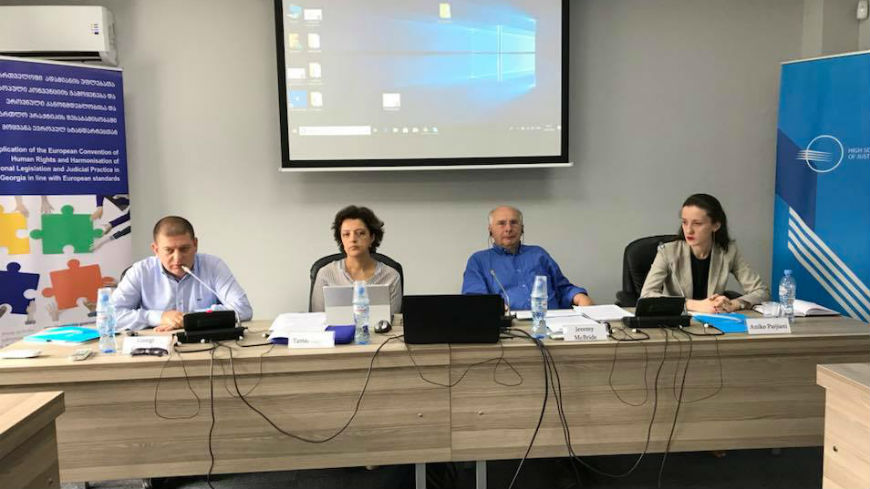On 14-15 July 2018, the European Union and the Council of Europe organised a two-day seminar for Georgian judges.
The seminar aimed at supporting judges to apply the latest case law of the European Court of Human Rights in coherent way in national court decisions and providing large and comprehensive overview of the human rights standards set by the European Convention of Human Rights.
Participants of the seminar got acquainted with the most recent case law of the Court, concerning state’s obligations to respect human rights, the right to private and family life, the right to life, the prohibition of torture, the prohibition of discrimination, the right to education, liberty, security and fair trial standards, the freedom of thought, conscience and religion, the protection of property, the freedom of expression and the freedom of assembly and association.
The event was organised in the framework of the European Union and the Council of Europe joint project “Application of the European Convention on Human Rights and harmonisation of national legislation and judicial practice in Georgia in line with European standards”, being implemented by the Council of Europe under the European Union and Council of Europe Partnership for Good Governance.

